The GEM-DIAMOND 2024 Summer School
Some personal impressions following the 2024 Summer School, a 2-day workshop focussed on the project's forthcoming textbook, on "Impact & Social Sciences"
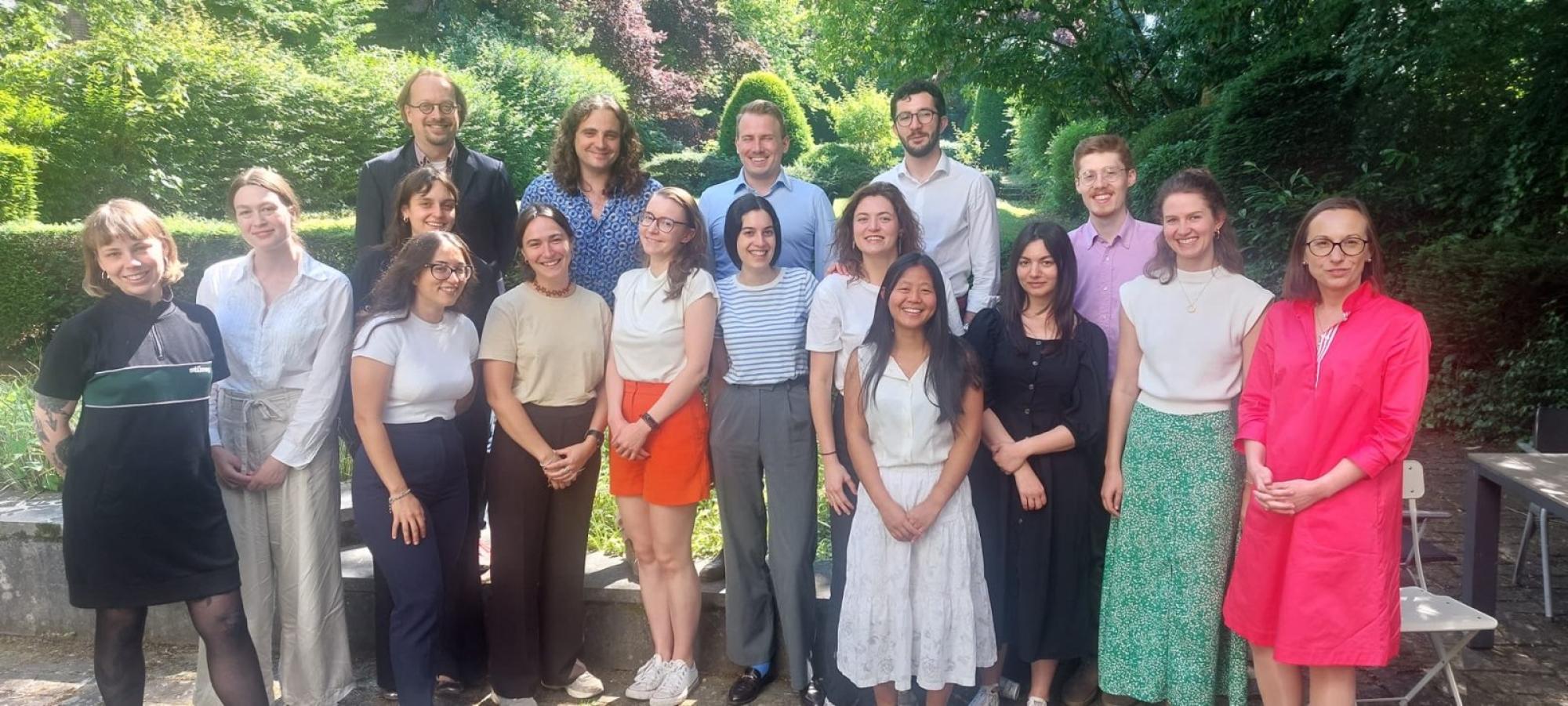
Insights and Inspiration from the GEM-DIAMOND Summer School 2024
I am excited to share the recent developments from the GEM-DIAMOND Summer School held on June 24-25, 2024, in Brussels! Not only did we enjoy the rare delight of fantastic weather in Brussels, but we also had the chance to meet up with everyone involved in the project for a productive and enriching workshop on our forthcoming textbook, Impact and Social Sciences: A Conceptual Index.
This workshop, held over two days, provided an opportunity to review and refine the first drafts of our handbook entries. We presented our drafts, engaged in critical discussions, and received constructive feedback from our experienced editors, Ramona Coman, David Paternotte, and Frederik Ponjaert, as well as our peers. The collaborative atmosphere and friendly exchanges made this experience truly beneficial for all involved.
The handbook, designed for undergraduate and postgraduate students in the social sciences, will address the role of impact through over 100 entries covering different angles across various disciplines, including political science, law, sociology, EU studies, IR, philosophy, and international political economy. This structure aims to provide an accessible, comprehensive resource on the crucial issue of research impact—an area often overlooked in many existing textbooks. The primary goal of the 2024 GEM Summer School was to advance the production of the collective volume which aims to propose a set of reflexive entries on the quest for impact in our disciplines, its consequences for the academia, and the social role of research more broadly.
The format of the summer school was designed to maximize the quality of the entries and the discussions. Each entry was circulated a week before the event, allowing us all to read each other’s entries and to and prepare our comments and feedback in advance. During the sessions, each entry was discussed for about 30 minutes, starting with the session’s discussant's comments, followed by an open floor for further questions and suggestions. This structure ensured focused and constructive feedback, aimed at improving the specific entries and enhancing the overall consistency and coherence of the handbook.
One of the highlights of the GEM-DIAMOND Summer School program, which stood out somewhat from previous events, was the emphasis on collaborative learning. We were encouraged to share our drafts with the whole group and engage in discussions, fostering a sense of mutual support between all involved in the project. This approach not only deepened our understanding of the subject matter but also allowed us to learn from each other's insights and perspectives. Moreover, this experience provided us with a firsthand look at the immense effort involved in creating a collective volume. We witnessed how each section of our forthcoming book is thoughtfully conceived, critiqued, and refined, making us feel deeply involved and invested in the success of this project.
Day 1: Tuesday June 24, 2024
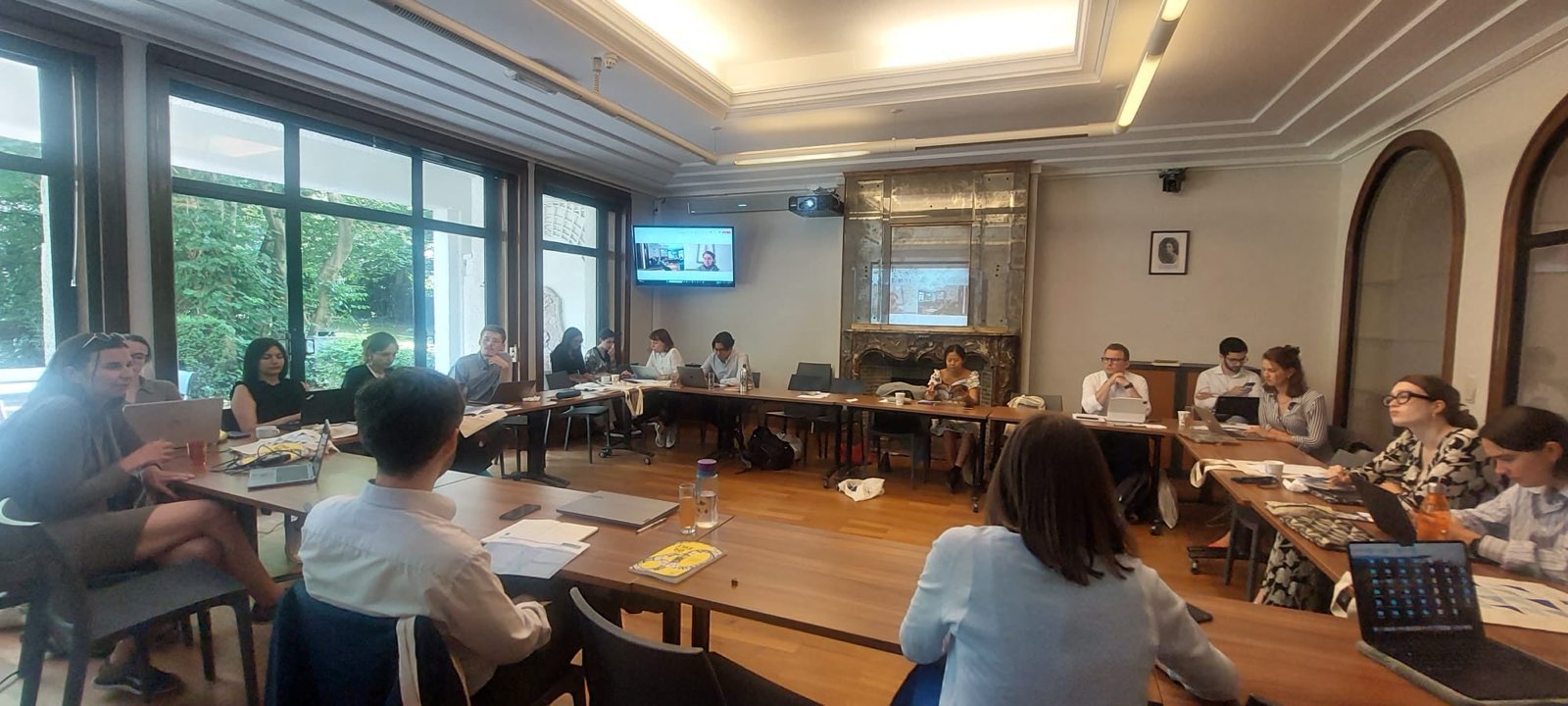 The summer school kicked off with a welcoming coffee and registration session, providing us all with a chance to catch up—many of us hadn’t seen each other since our last joint event in Rome all the way back in March. Despite starting the discussions 15 minutes late (we can blame that on the academic quarter—or perhaps Brussels' unpredictable public transport!), the first day was packed with engaging sessions.
The summer school kicked off with a welcoming coffee and registration session, providing us all with a chance to catch up—many of us hadn’t seen each other since our last joint event in Rome all the way back in March. Despite starting the discussions 15 minutes late (we can blame that on the academic quarter—or perhaps Brussels' unpredictable public transport!), the first day was packed with engaging sessions.
Following the Welcome Words by the Romana, David and Frederik, the day began with a session focused on the intersection of impact and policy. The drafts by Sofie on agenda-setting, Samir on policy impact and Vlad on citizen science explored how social science research influences policy decisions. Each presentation sparked vigorous discussions led by the session’s discussant, Ramona, critiquing content, coherence, and the potential contribution to our upcoming handbook.
The momentum continued into the second part of the session, which deepened our understanding of policy impact. Additional drafts provided by Anna, Katharina and Edouard highlighted diverse ways research shapes public policy, with topics discussed involving forecasting, evidence-based policy making and think tanks.
After a satisfying lunch break, the afternoon session shifted gears to examine the nexus of law and social science research and impact. Four sessions discussed the drafts of Pedro on Legal Scholar Activism, Guillaume on Situated (legal) Knowledge, Benedetta on courts and Giulia on Legal Academics.
Day 2: Tuesday June 25, 2024
Day two was organised in two sessions. The second day began with a session on self-awareness and impact, exploring the reflexive aspects of conducting social science research. Five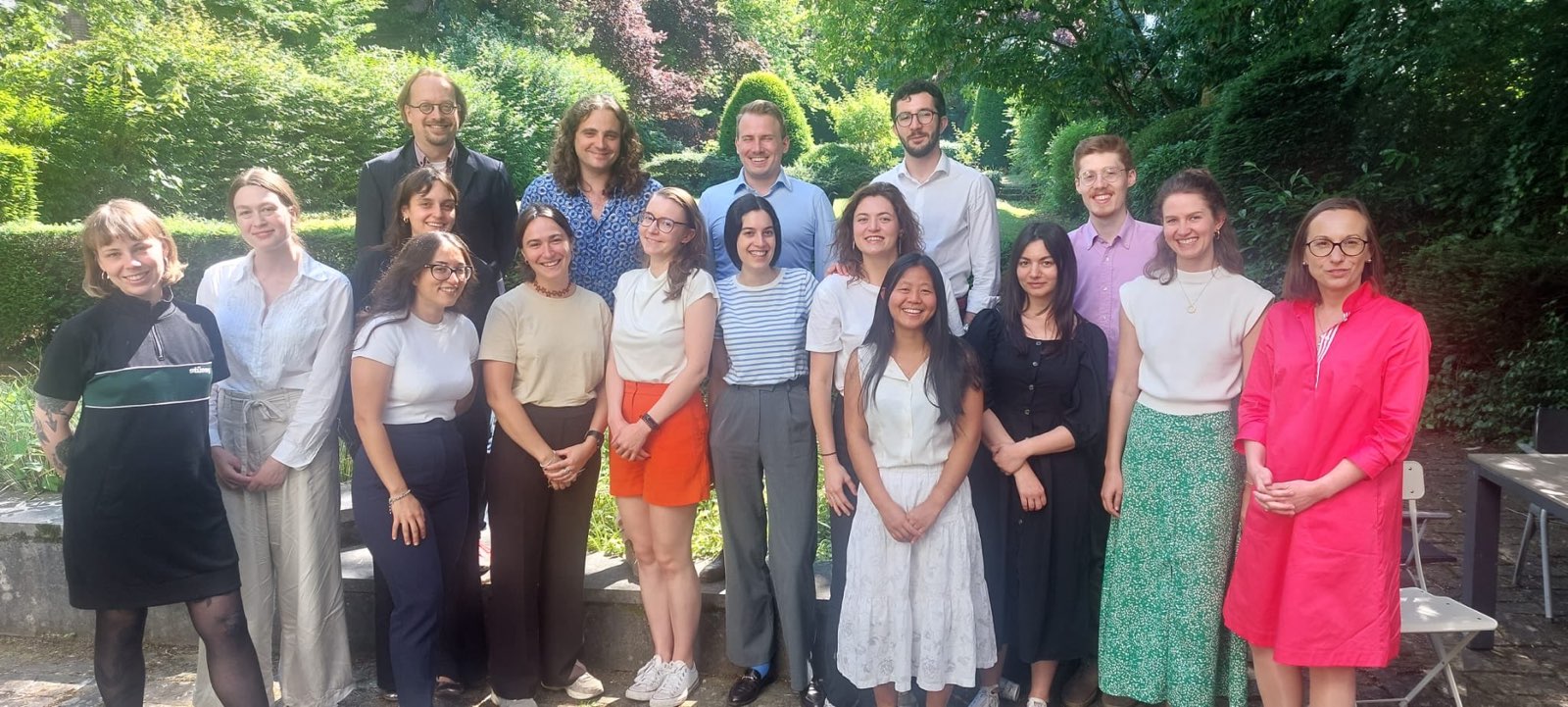 presentations delved into how researchers' awareness on how biases and power hierarchies can influence the social impact. My draft on decentering was first to be critiqued, which resulted in me signing up to do a second entry on Eurocentrism! Debora, provided a wonderful presentation on (De)Coloniality & Pedagogy. While Jing-syuan disussed two draft entries, the first on Academic censorship and the second on Risk assessment. The final draft discussed during the session was on Environmental impact by Amadine Orsini and Zoe Briard.
presentations delved into how researchers' awareness on how biases and power hierarchies can influence the social impact. My draft on decentering was first to be critiqued, which resulted in me signing up to do a second entry on Eurocentrism! Debora, provided a wonderful presentation on (De)Coloniality & Pedagogy. While Jing-syuan disussed two draft entries, the first on Academic censorship and the second on Risk assessment. The final draft discussed during the session was on Environmental impact by Amadine Orsini and Zoe Briard.
A delightful surprise on the second day was the vegan feast that awaited us during the lunch break. The catering was truly exceptional, offering a variety of flavorful and nutritious dishes. The spread included various salads, hearty mains, and a range of delicious vegan desserts, showcasing the creativity and skill of the catering team. This feast not only provided much-needed sustenance but also contributed to the overall inclusive atmosphere of the event. (I would like to take the opportunity to highlight here the kind request from several fellows that this catering company continues to be hired for future events).
After lunch, the focus shifted to different modes of research and their implications for social impact. Four presentations, by Anna on quantification, Adalgisa on Stakeholders, Larissa on academic freedom and Serafine on Science for Policy Agenda, led to a robust and fruitful discussion.
At around 4pm, The summer school concluded with a wrap-up session hosted by the editors, Ramona Coman, David Paternotte, and Frederik Ponjaert. We all took stock of the exchanges that had taken place over the two days, set out the next steps in the production of the handbook, and collected comments and suggestions from the fellows. This session was instrumental in ensuring that everyone left with a clear understanding of the way forward – with our next session to discuss the progress of our chapters scheduled for late October.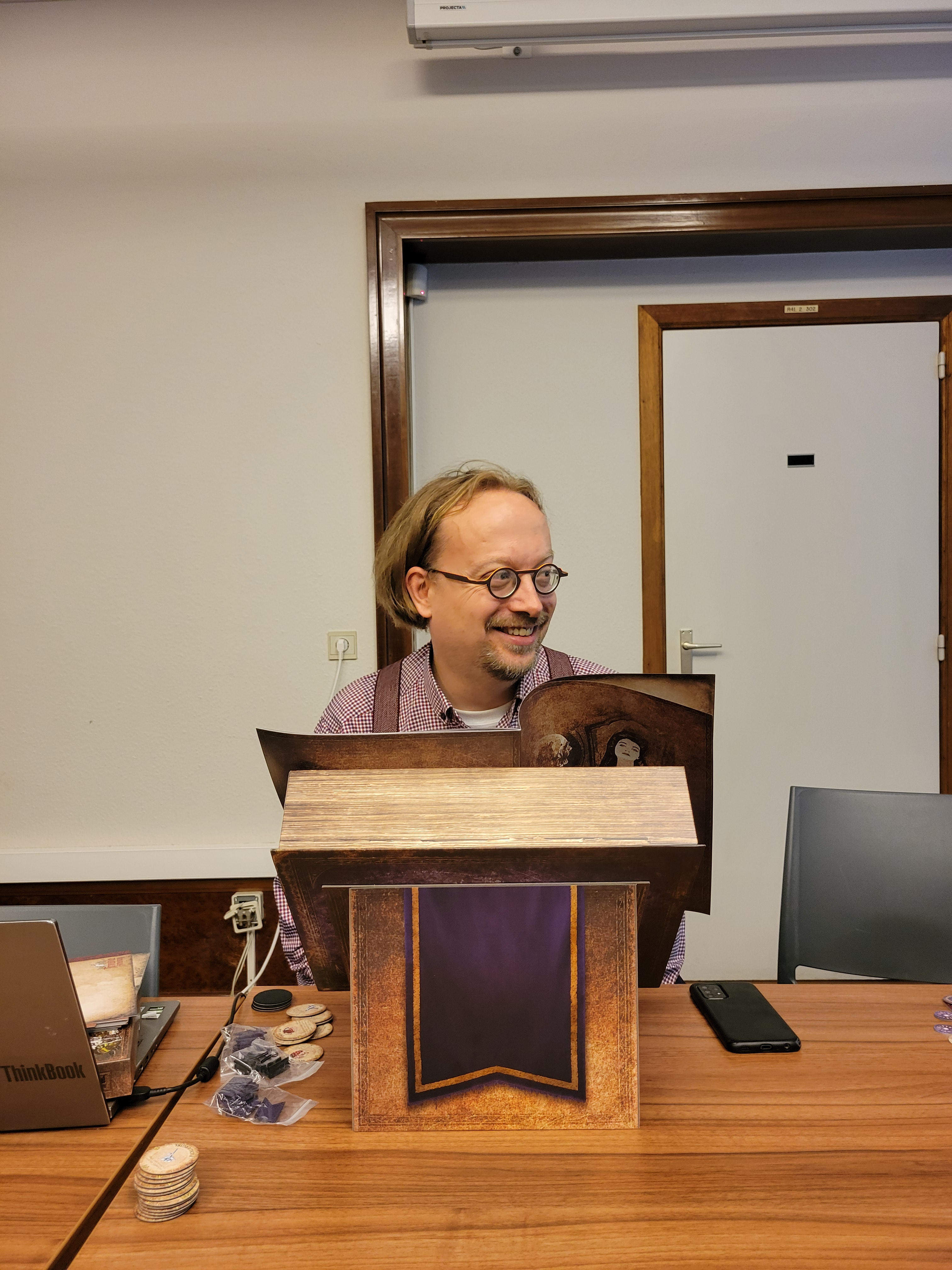
After the concluding drinks reception, the grand finale, for those brave souls who hadn't yet fled to the safety of their home to begin re-working their chapters, was a high-stakes showdown of "Blood on the Clocktower," with Frederik donning his finest game master persona— complete with an imaginary wizard's hat.
This strategic role-playing game turned into a fierce battlefield of good versus evil, where wits were as sharp as daggers and deception flowed as freely as the complimentary coffee did throughout the Summer School. Participants morphed into various roles, plotting and parleying to unmask the villains among their scholarly ranks. Even the IEE’s resident fox dropped by for a sniff of the action, possibly auditioning for the role of a cunning outsider!
As the game unfolded, the true nature of each player was laid bare. The quietest PhD student, previously known only for their extensive collection of annotated bibliographies, revealed a Machiavellian streak that would make even the most seasoned politician blush. The typically trustworthy study buddy? A master deceiver with a grin that screamed "Trust me... or not." Alliances formed and crumbled faster than a theoretical framework under scrutiny, with accusations zinging across the room like sparks in a high voltage lab.
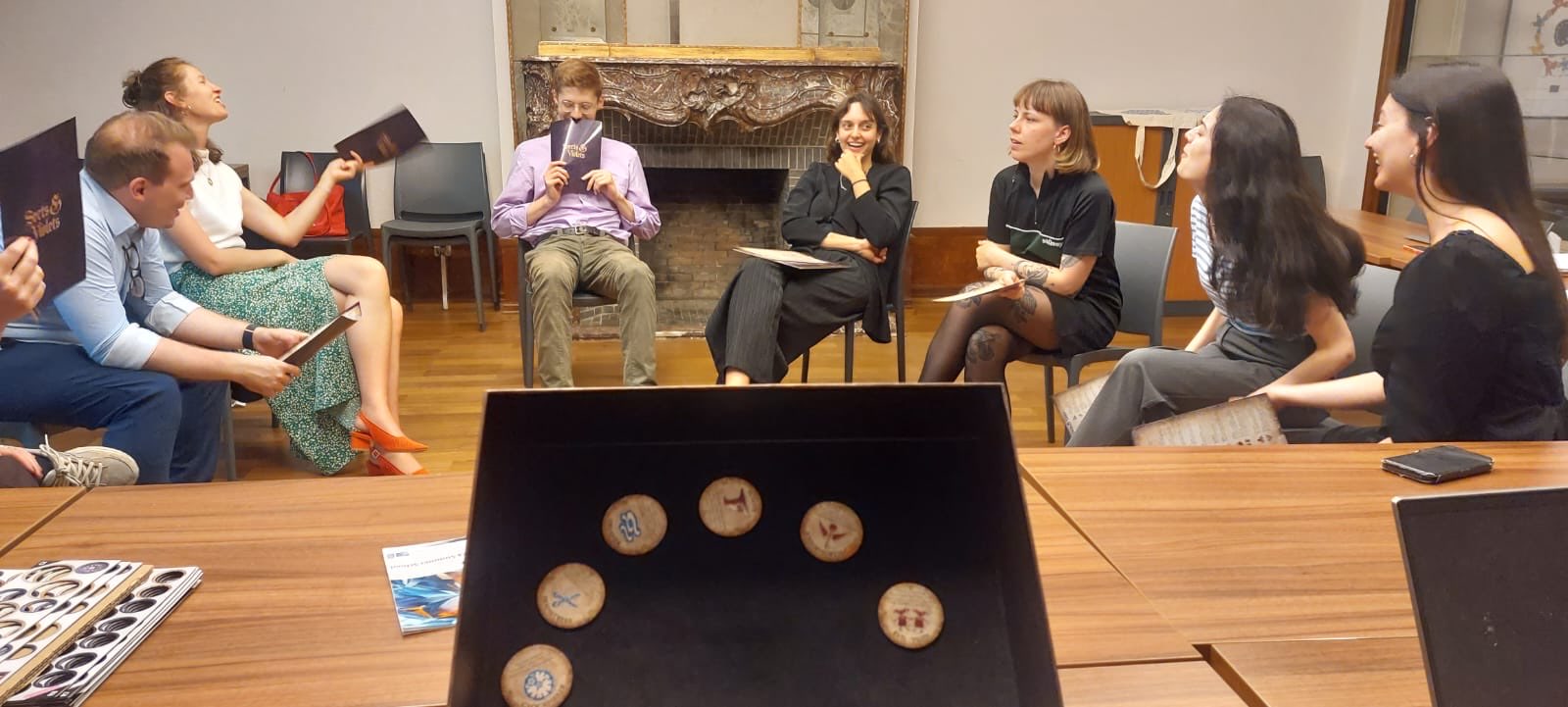 The suspense was so thick you could cut it in half with a copy of Foucault’s "Discipline and Punish". Screams and gasps echoed through the halls as friendships were put to the ultimate test. The forces of good, armed with logic and sheer hope, fought valiantly but ultimately fell to the dark machinations of their evil counterparts. Victorious cackles filled the room as the triumphant baddies reveled in their win, smug smiles plastered across their faces. The defeated good guys, meanwhile, vowed sweet, intellectual revenge in the next round, plotting their comeback with the same fervor they usually reserve for late-night theory debates.
The suspense was so thick you could cut it in half with a copy of Foucault’s "Discipline and Punish". Screams and gasps echoed through the halls as friendships were put to the ultimate test. The forces of good, armed with logic and sheer hope, fought valiantly but ultimately fell to the dark machinations of their evil counterparts. Victorious cackles filled the room as the triumphant baddies reveled in their win, smug smiles plastered across their faces. The defeated good guys, meanwhile, vowed sweet, intellectual revenge in the next round, plotting their comeback with the same fervor they usually reserve for late-night theory debates.
A final word
Despite the game's shenanigans challenging a couple of friendships, throughout the two days, a strong sense of camaraderie continued to develop among all of the fellows and participants of the program. The summer school was not just about academic growth; it was also about building a supportive network of scholars and friends who are passionate about making a difference through their research. The bonds formed during this experience of our PhD will undoubtedly lead to future collaborations and continued mutual projects.
As we move forward with the production of "Impact and Social Sciences: A Conceptual Index," the insights and feedback gathered during the summer school will play a crucial role in shaping a handbook that is both academically and practically relevant. We hope that this resource will become an invaluable tool for students and researchers, enhancing their ability to contribute meaningfully to both academic advances and broader societal goals. Stay tuned for more updates on this exciting project!
